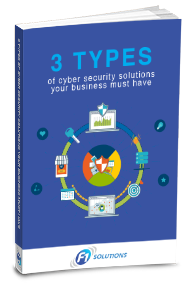Modern technologies have become a big part of our lives that we can't begin to imagine living without them. Almost everyone has a mobile device, and technology that was once limited to large corporations can now be used by small- to medium-sized businesses (SMBs) as well. 2020 will bring new advancements in technology, and with it, risks. New technology can provide cybercriminals with more tools to create malware that’s more efficient in slipping through the most advanced network security software. This can do a significant amount of damage to your business if you are unprepared for a cyberattack.
What is malware?
Malware, also known as malicious software, are codes developed by cybercriminals to infiltrate, steal, and corrupt your network system and data. Hackers use different types of malware to launch a cyberattack, depending on what they want to accomplish. Let’s explore the most common types of malware cyber criminals use to attack and disrupt business.
-
Viruses – Viruses are among the earliest forms of malware and are the only types that can infect other files. A computer virus is designed to alter a host file, so when you click or execute that host file, the virus program is executed as well — this is how the virus spreads. Once it spreads, a computer virus can delete your data, cause permanent hard disk damage, or even be used to extort money from you.
-
Ransomware – This type of malware is designed to infiltrate your system and lock your files until you pay a ransom. Over the years, ransomware has become more advanced and can start destroying your organization's important data as soon as your network gets infected. Phishing is the most common method cybercriminals use to deliver ransomware into your network system.
-
Trojans – Trojans are malware that disguise themselves as legitimate programs but contain malicious code. This is an older type of malware and must be executed by a user before it can start harming your entire network. Hackers deliver this malware through email or an infected website. One of the most common types of Trojan used by cybercriminals is a web pop-up that says your computer is infected. You're then tricked into scanning your computer with a fake antivirus program that then installs the Trojan on your device.
-
Spyware – Spyware is malicious software designed to spy on your computer activity. This malware can collect keystrokes and browser history and even harvest data. In addition, certain types of spyware can interfere with your network's security settings, allowing more malware to attack it. Spyware can enter your computer through a Trojan or can be found bundled with legitimate programs.
-
Rootkit – This malware can remotely access and control your computer without being caught by a network security program. With a rootkit, hackers are free to steal information, execute files, alter software settings, and install even more malware onto your computer. A rootkit can infiltrate your computer through a phishing attack or security vulnerability or can come bundled with other software applications.
-
Malvertising – Malvertising has steadily grown in popularity over the years because it uses legitimate advertisements to deliver malware to unsuspecting users. Hackers will pay to place an infected ad on a legitimate website, then, when you click on the infected ad, the malware embedded in it can execute automatically even without any additional action from you. In some cases, an infected ad can also redirect you to a malicious website.
How to protect your business for malware
SMBs often fall prey to malware and are the preferred targets of cybercriminals because they don't possess the resources to hire and maintain a dedicated IT security team. This is where a managed IT services provider (MSP) such as F1 Solutions can help you.
Download our free eBook!
Get to know more about cyber security solutions by reading our free eBook: 3 types of cyber security solutions your business must have
Our team of IT experts will review your current network infrastructure and security tools, and eliminate any possible weaknesses. We will devise a network security plan that's tailored to the specific needs of your business and make sure that your security software solutions are patched and updated. To learn more about how we can help keep your business safe from malware, give us a call today.



